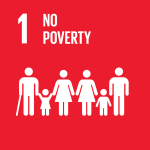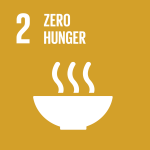US$26.6 million GCF-financed, UNDP-supported project will improve food security and strengthen resilience
10 November 2020 - The Government of Zimbabwe through its Ministry of Lands, Agriculture, Water and Rural Resettlement, Climate Change Department and UNDP Zimbabwe launched today the Green Climate Fund (GCF)-financed ‘Building Climate Resilience of Vulnerable Agricultural Livelihoods in Southern Zimbabwe project.'
The innovative US$26.6 million initiative aims to reach 2.3 million vulnerable smallholder farmers in Manicaland, Masvingo and Matabeleland South, improve food security, and build resilience for people whose lives and livelihoods are being put at risk in the face of climate risks and impacts.
“This project has come at an opportune time where addressing climate change impacts requires significant financial and technical support. Most vulnerable and poor communities have limited capacity to adapt to the impacts of climate change, with 80% of Zimbabweans being dependent on rainfed agriculture,” said Permanent Secretary for the Ministry of Lands, Agriculture, Water and Rural Resettlement, Dr John Basera.
UNDP Zimbabwe remains committed to supporting work focused on climate change initiatives in Zimbabwe through its "Climate Promise" and ongoing work over the years in related projects including the development of a costed action plan on mitigation and adaptation through the National Climate Change Response Strategy, the Low Emission Development Strategy, the Zimbabwe Resilience Building Fund, the Oxfam-UNDP scaling up adaptation project and technical contribution to the UNEP-Government of Zimbabwe partnership in developing a National Adaptation Plan with readiness funding from GCF.
"The project is contributing immensely towards the Government of Zimbabwe`s climate change priorities outlined in its National Development Strategy , Nationally Determined Contributions, National Climate Change Policy and strategies including strengthening the management of water resources and climate proofing irrigation in the face of climate change, strengthening capacities to generate new forms of empirical knowledge, provision of technologies and agricultural support systems that are climate smart," said UNDP Zimbabwe Deputy Resident Representative Ms. Madelena Monoja.
Key project outputs:
- Revitalization and climate-proofing of existing irrigation schemes, improving water use efficiency and enhancing soil moisture management on rain-fed lands.
- Adoption and application of climate-resilient agronomic practices and cropping systems through training of smallholder farmers and designing of climate-resilient innovations.
- Development of localized innovation platforms which will improve access to markets.
- Production and dissemination of climate, agricultural and market information by improving the network of hydro-meteorological stations in the project areas and by enhancing the capacities of institutional personnel to compile, interpret and produce actionable information for smallholders.
Links
UNDP Project Page: Building Climate Resilience of Vulnerable Agricultural Livelihoods in Southern Zimbabwe
About the United Nations Development Programme
UNDP is the leading United Nations organization fighting to end the injustice of poverty, inequality, and climate change. Working with our broad network of experts and partners in 170 countries, we help nations to build integrated, lasting solutions for people and planet. www.undp.org
About the Green Climate Fund
The Green Climate Fund (GCF), the world’s largest fund dedicated to climate finance, supports developing countries to reduce their carbon emissions and strengthen their resilience to climate change. Set up by the United Nations Framework Convention on Climate Change (UNFCCC) in 2010, GCF is an operating entity of the UNFCCC’s Financial Mechanism that also serves the Paris Agreement. GCF drives climate finance to where it is needed most: in the Least Developed Countries, Small Island Developing States, and African States.



